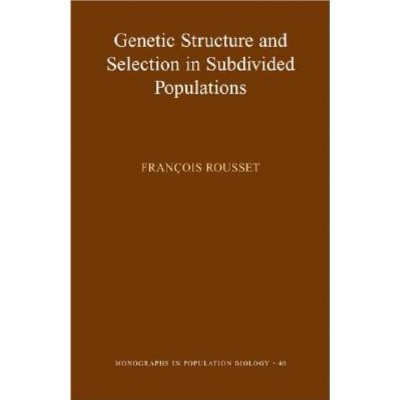Sponsored

Resolving Ecosystem Complexity - (Monographs in Population Biology) by Oswald J Schmitz (Paperback)
In Stock
Sponsored
About this item
Highlights
- An ecosystem's complexity develops from the vast numbers of species interacting in ecological communities.
- About the Author: Oswald J. Schmitz is the Oastler Professor of Population and Community Ecology in the Yale School of Forestry and Environmental Studies.
- 192 Pages
- Nature, Ecology
- Series Name: Monographs in Population Biology
Description
Book Synopsis
An ecosystem's complexity develops from the vast numbers of species interacting in ecological communities. The nature of these interactions, in turn, depends on environmental context. How do these components together influence an ecosystem's behavior as a whole? Can ecologists resolve an ecosystem's complexity in order to predict its response to disturbances? Resolving Ecosystem Complexity develops a framework for anticipating the ways environmental context determines the functioning of ecosystems.
Oswald Schmitz addresses the critical questions of contemporary ecology: How should an ecosystem be conceptualized to blend its biotic and biophysical components? How should evolutionary ecological principles be used to derive an operational understanding of complex, adaptive ecosystems? How should the relationship between the functional biotic diversity of ecosystems and their properties be understood? Schmitz begins with the universal concept that ecosystems are comprised of species that consume resources and which are then resources for other consumers. From this, he deduces a fundamental rule or evolutionary ecological mechanism for explaining context dependency: individuals within a species trade off foraging gains against the risk of being consumed by predators. Through empirical examples, Schmitz illustrates how species use evolutionary ecological strategies to negotiate a predator-eat-predator world, and he suggests that the implications of species trade-offs are critical to making ecology a predictive science. Bridging the traditional divides between individuals, populations, and communities in ecology, Resolving Ecosystem Complexity builds a systematic foundation for thinking about natural systems.From the Back Cover
"Resolving Ecosystem Complexity presents a modern synthesis of trophic structure and function that addresses some of the most fundamental questions raised by Darwin, Tansley, and Hutchinson. Through rigorous analysis of case studies and data, Schmitz brings to life the importance of direct and indirect interactions on the functioning of ecosystems. This clear and compelling book is a must-read for scientists and educators interested in integrative ecosystem analysis."--Adrien Finzi, Boston University
"This ambitious and inspiring book is a valuable contribution to ecology. Highly synthetic, it melds an overall approach to science with summaries of detailed empirical and theoretical work. Resolving Ecosystem Complexity is remarkably well done and I learned a great deal from reading this important book."--Anurag Agrawal, Cornell University
"This book focuses on the importance of multitrophic interactions in ecology. It illuminates significant points and helped me to think about complex ecosystems more clearly."--Frederick R. Adler, University of Utah
Review Quotes
"Although they are strongly focused on the experimental side of ecology the range of topics covered in this book is large and coupled with at least initial experimental evidence, sometimes with fascinating hypothesis-generating extrapolations."---John H. Vandermeer, BioScience
"One of Choice's Outstanding Academic Titles for 2011"
"This book would be a great starting point for undergraduates considering careers in ecology and is a goldmine for graduate students looking for dissertation topics. But most importantly, this book reminds all of us that we can indeed understand the complexity of ecological systems."---Aaron M. Ellison, Ecology
"Within the fast-growing landscape of ecological literature, this book emerges as a rare yet inspiring attempt to explain ecosystem complexity. Schmitz does this by introducing contingencies in nature and synthesizing up-to-date knowledge on species interactions, trophic structure, and ecosystem function and dynamics through stimulating questions, theoretical thinking, and empirical evidence. . . . This is a model book in ecology, and should be used as a critical reference source for academics interested in ecological theory and recent developments in the field."-- "Choice"
About the Author
Oswald J. Schmitz is the Oastler Professor of Population and Community Ecology in the Yale School of Forestry and Environmental Studies.Shipping details
Return details
Trending Non-Fiction

















